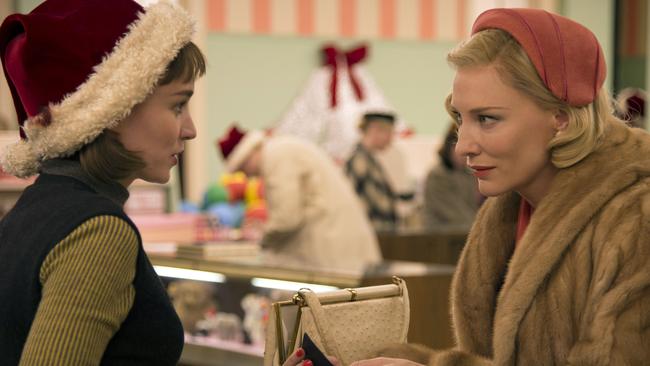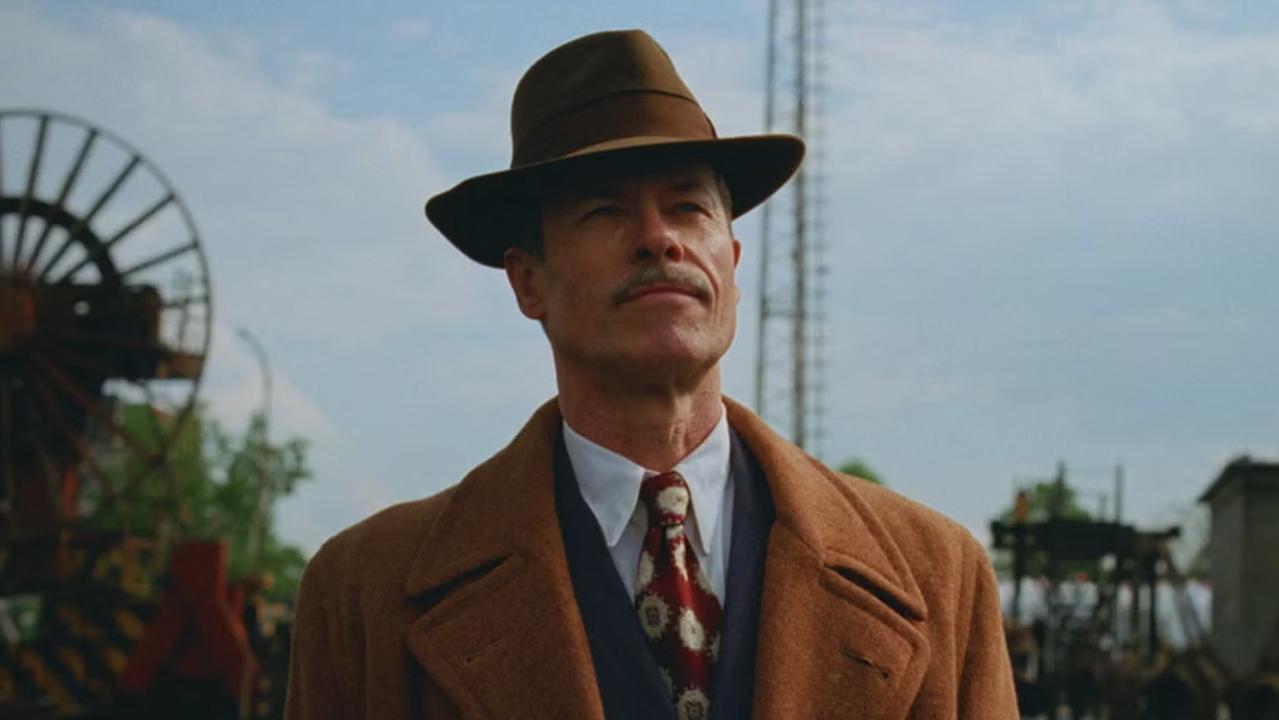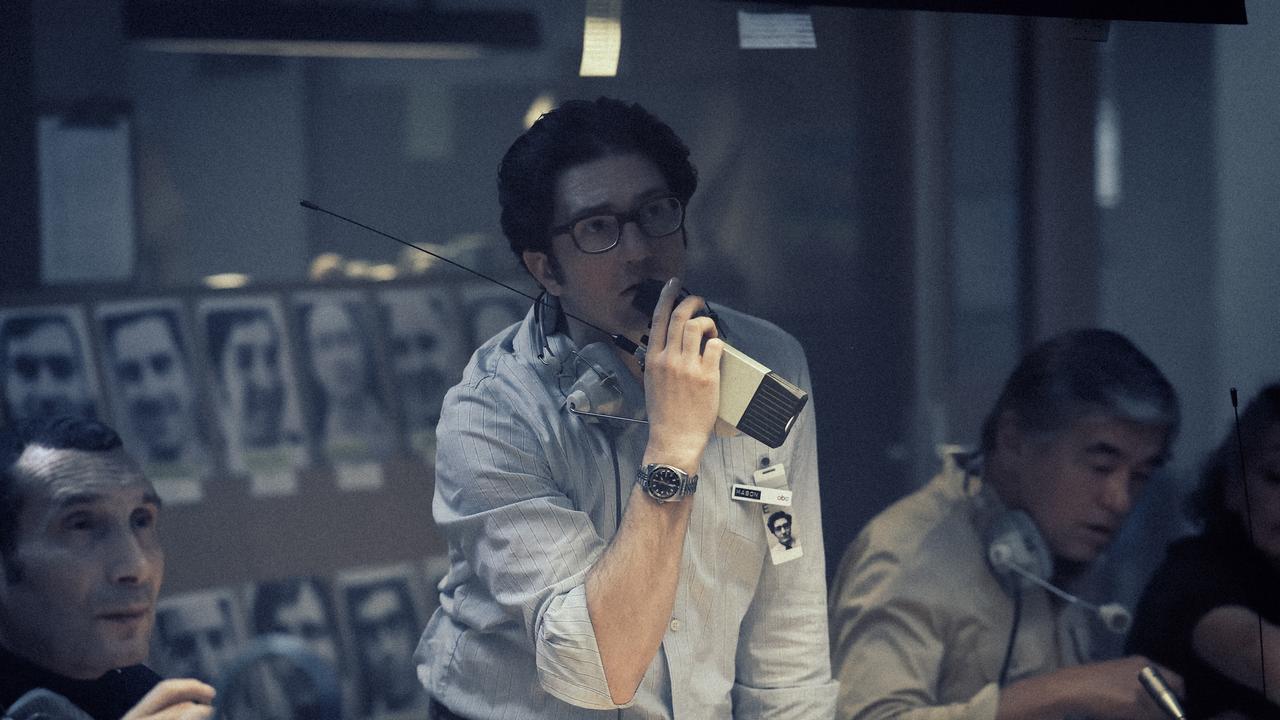Adelaide Film Festival to screen new films, old films and your film
More than 180 films will screen across Adelaide from October 15-25 during the Adelaide Film Festival.

A remastered version of the Australian classic Storm Boy, the Australian premiere of Cate Blanchett’s Academy Award favourite Carol, and a live music improvisation by Lisa Gerrard to Andrei Tarkovsky’s classic Stalker are among the highlights of the full program for the Adelaide Film Festival announced today. More than 180 films will screen across Adelaide from October 15 to 25, including the Australian premiere of a Venice film festival contender, Sue Brooks’s Looking for Grace, documentary I Am Malala and closing-night film Youth, starring Michael Caine. Other AFF initiatives include the chance to create a short film that will premiere during the festival — The Film You Wrote — the writing of which begins tomorrow at www.adelaidefilmfestival.org, and the reunion of festival ambassadors Margaret Pomeranz and David Stratton as hosts of the Ultimate Quiz night. The recipient of the 2015 Don Dunstan Award will be the writer of Lantana, Head On and A Most Wanted Man — and McLaren Vale local — Andrew Bovell. The festival will screen more than 40 Australian and 24 South Australian films including the 13 projects from the Adelaide Film Festival Investment Fund 2015 slate. These include the dramedy feature A Month of Sundays, starring Anthony LaPaglia and directed by Matt Saville; Spear, by Bangarra’s Stephen Page; Rosemary Myers’s Girl Asleep; and Warwick Thornton’s The Way of the Ngangkari at the Art Gallery of South Australia, in partnership with Tarnanthi, the Festival of Contemporary Aboriginal and Torres Strait Islander Art. Carol is one of 10 Australian premieres competing in the Foxtel Movies International Feature Competition: Peter Sollett’s Freeheld, starring Julianne Moore and Ellen Page; Looking for Grace starring Richard Roxburgh and Radha Mitchell; Danish period drama Gold Coast; Ethiopian film Lamb; Neon Bull from Brazil’s new wave movement; South Korean thriller Office; from Iran, Payman Haghani’s 316; Visar Morina’s refugee story, Father; and Australian Bentley Dean and Martin Butler’s Tanna, which was filmed in Vanuatu. International films premiering include the Catholic Church abuse drama Spotlight starring Mark Ruffalo, Michael Keaton and Rachel McAdams; Paul Weitz’s comedy-drama Grandma starring Lily Tomlin;and Yorgos Lanthimos’s acclaimed The Lobster.
The Australian Directors Guild and Australian Screen Directors Authorship Society have joined the Australian Writers Guild and CISAC (International Confederation of Societies of Authors and Composers) in condemning Screenrights’ new express dispute resolution procedure. The new policy has been roundly condemned as taking money from Australian creatives although the writers and directors are coming at it from slightly different angles. The one guild remaining silent on the new procedure is Screen Producers Australia because the new EDRP means royalties from retransmission and other rights will revert to producers, not writers and directors. Interestingly, the Screenrights board has six producers and not one writer or director, but that’s by the by. Both the AWG and ADG argue their members have rights under the Copyright Act to royalties that will be denied them. “We’re not claiming stuff we don’t have the rights to,” the ADG’s Kingston Anderson tells Reel Time. Among other beefs is the fact money in disputes that can’t be resolved automatically reverts to Screenrights, which the AWG describes as “a multi-million-dollar organisation established to collect and distribute statutory royalty payments for film and television makers”. The ADG is also concerned the new EDRP is stacked against foreign directors too, in that they can’t claim royalty payments here, despite foreign laws demanding such. “It’s now causing us trouble collecting rights overseas for Australian directors,” says Anderson. Indeed the International Confederation of Societies of Authors and Composers also has expressed its support of “Australian writers and directors in expressing their disappointment at the adoption of new rules for the distribution of audiovisual royalties in Australia”. It is understood the AWG is threatening legal action against the new EDRP, which Screenrights says will be reviewed by an independent reviewer after 12 months of operation.
The rap biopic Straight Outta Compton opened impressively in Australia with $4.5 million in its first weekend, continuing Universal Pictures’ incredible year globally. Universal’s films have helped push the North American box office to its second biggest summer season and, globally, its Jurassic World made $US1.65 billion ($2.36bn). Minions and Furious 7 have each passed the $US1bn mark, making it the first studio to have three billion-dollar hits in a calendar year. Straight Outta Compton, about the rise of rap group NWA in the mid-1980s, had a screen average of $14,000, four times more than any other major release during the weekend. Southpaw was second ahead of Vacation, as both passed $4m in total. Contentious new local documentary Gayby Baby opened with $16,159 from five screens, failing to capitalise on a manufactured tabloid furore. The Australian road movie Last Cab to Darwin keeps on keeping on, with another top 10 placing with $442,056 lifting its total box office to $6.2m in five weeks. Neil Armfield’s Holding the Man earned $154,415 in its second weekend, taking its total box office to $707,000. A Walk in the Woods, the adaptation of the Bill Bryson book, starring Robert Redford and Nick Nolte, opened with $484,243, while American Ultra earned $293,441 on its first weekend.


